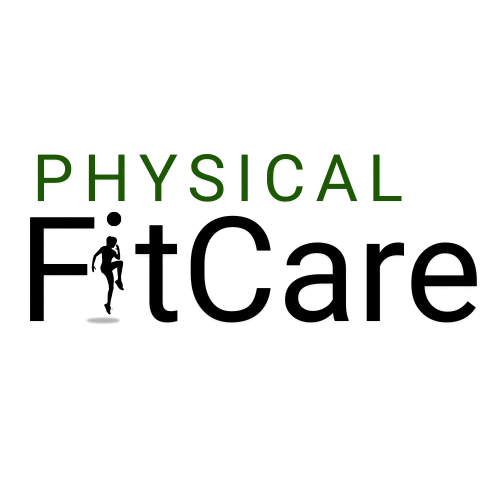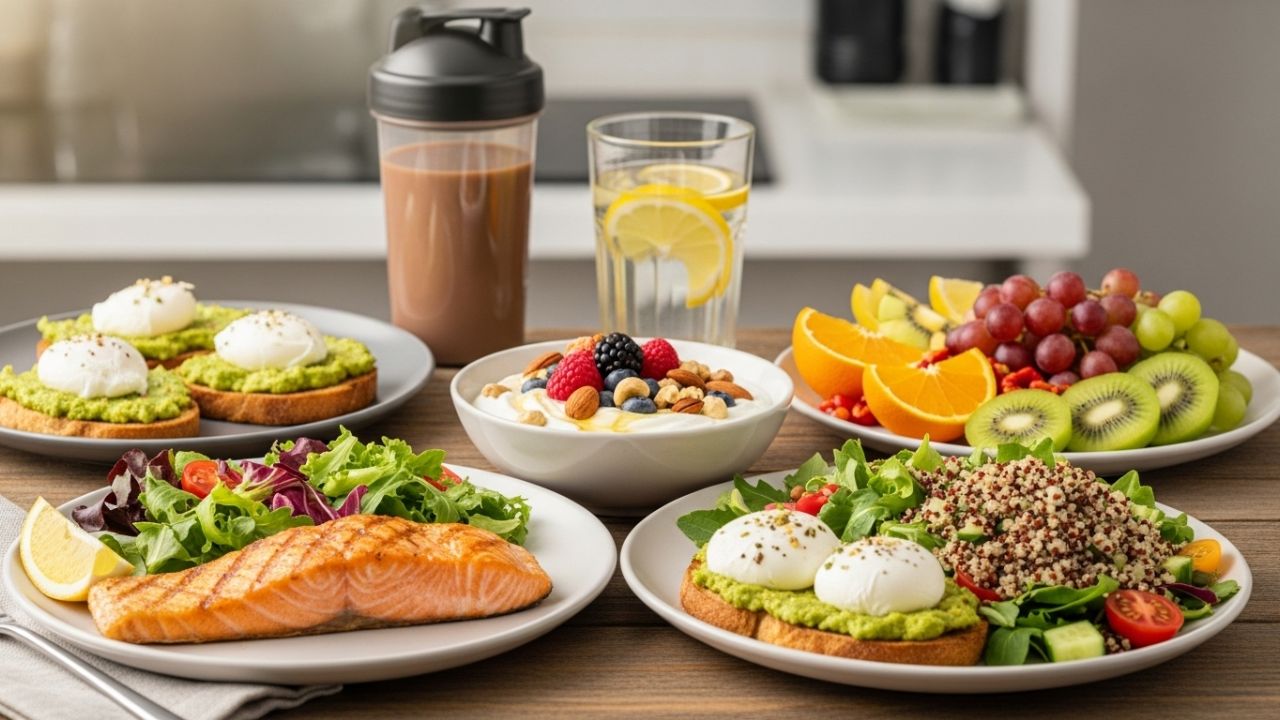After finishing an intense gym workout, your body enters a recovery phase. This period is crucial for muscle repair, glycogen replenishment, and overall recovery. What you eat post-workout can make or break your fitness progress, whether your goal is muscle gain, fat loss, or overall fitness.
Why Post-Workout Nutrition is Important?
During exercise, your body uses up glycogen stores and causes tiny tears in muscle fibers. Post-workout nutrition helps in:
- Replenishing glycogen stores for energy.
- Repairing and building muscle tissue through protein synthesis.
- Reducing muscle soreness and fatigue.
- Boosting metabolism for better results.
Skipping or delaying your post-workout meal may slow down recovery and hinder your performance in the next session.
Macronutrients Needed After Gym Workout
The ideal post-workout meal contains three essential macronutrients:
- Protein
Protein is essential for muscle repair and growth. Eating protein after a workout supports the process of muscle repair and promotes new muscle growth. Aim for 20–40 grams of protein within 30–60 minutes after your workout.
Best protein sources after workout:
- Chicken breast
- Eggs or egg whites
- Whey protein shake
- Greek yogurt
- Cottage cheese
- Fish (salmon, tuna, cod)
- Plant-based proteins (tofu, tempeh, lentils)
- Carbohydrates
Carbs help restore glycogen stores depleted during exercise. Pairing carbs with protein enhances recovery.
Good carb sources for post-workout:
- Brown rice
- Sweet potatoes
- Oats
- Quinoa
- Whole-grain bread
- Fruits (banana, berries, apples)
- Vegetables (broccoli, spinach, bell peppers)
- Healthy Fats
Although fats slow digestion, moderate amounts of healthy fats can support recovery and provide essential fatty acids.
Healthy fat sources:
- Avocado
- Nuts and seeds (almonds, chia, flax)
- Olive oil
- Peanut butter (in moderation)
What to Eat After Gym Workout for Muscle Gain?
If your goal is muscle building, focus on high-protein and moderate-carb meals to fuel muscle growth.
Example muscle gain meal:
- Grilled chicken breast (30g protein)
- Brown rice (40–50g carbs)
- Steamed broccoli (fiber + vitamins)
- 1 tsp olive oil (healthy fat)
Post-workout shake option:
- 1 scoop whey protein
- 1 banana
- 1 cup milk or almond milk
- 1 tbsp peanut butter
What to Eat After Gym Workout for Weight Loss?
For weight loss, you still need protein to preserve lean muscle but slightly reduce carbs and focus on low-calorie, nutrient-dense foods.
Example weight loss meal:
- Boiled eggs (2–3)
- Steamed vegetables
- 1 bowl salad with olive oil dressing
Light post-workout snack:
- Greek yogurt with berries
- Handful of almonds
- Low-fat cottage cheese
Best Post-Workout Foods
Here are top post-workout foods categorized for convenience:
Protein-rich options:
- Whey protein shake
- Eggs (boiled, scrambled, or omelet)
- Grilled chicken or turkey
- Fish like tuna, salmon, or sardines
- Plant-based: tofu, lentils, edamame
Carbohydrate options:
- Oatmeal with banana
- Quinoa salad
- Whole-grain wrap
- Sweet potato mash
- Fruits (apple, orange, kiwi, berries)
Healthy fat options:
- Avocado toast
- Nuts & seeds mix
- Chia pudding
- Almond butter on whole-grain bread
Post-Workout Meal Timing: When Should You Eat?
The anabolic window (30–60 minutes post-workout) is considered the best time to eat. This is when your body is most efficient at absorbing nutrients for muscle recovery.
However, recent studies show the overall daily nutrient intake is more important than exact timing. Still, consuming your meal or shake within 2 hours post-exercise is ideal.
Hydration After Gym Workout
Never underestimate the power of hydration. After intense sweating, your body loses water and electrolytes.
Post-workout hydration tips:
- Drink 500–700 ml of water after workout.
- Add electrolyte-rich drinks (coconut water, lemon water with salt).
- Avoid excessive sugary sports drinks unless you had a very intense session.
Post-Workout Supplements
Supplements are optional but can enhance recovery if used wisely.
- Whey protein – Fast-digesting, rich in amino acids.
- BCAA (Branched-Chain Amino Acids) – Reduce muscle soreness.
- Creatine – Improves strength and recovery.
- Glutamine – Supports muscle repair and immunity.
Sample Post-Workout Meal Plans
For Muscle Gain
- Meal: Chicken breast, quinoa, spinach salad, olive oil dressing
- Snack: Whey protein shake with banana
For Weight Loss
- Meal: Grilled fish, steamed broccoli, small portion of sweet potato
- Snack: Greek yogurt with chia seeds
Vegetarian Option
- Meal: Paneer bhurji, whole-grain roti, cucumber salad
- Snack: Almond milk smoothie with banana
Foods to Avoid After Gym Workout
- Fried foods – High in unhealthy fats, slow digestion.
- Sugary drinks and junk food – Spikes insulin unnecessarily.
- Too much caffeine or alcohol – Dehydrates the body.
- Processed snacks – Lack essential nutrients.
Knowing what to eat after a gym workout is crucial for maximizing your hard work. A well-balanced post-workout meal with protein, carbs, and healthy fats accelerates recovery, boosts performance, and helps achieve your fitness goals faster.
Whether your goal is muscle gain, fat loss, or maintaining a healthy body, choose whole, nutrient-rich foods and stay hydrated.
Frequently Asked Questions
You should eat a meal rich in protein and carbohydrates within 30–60 minutes after your workout. Examples include a whey protein shake with a banana, grilled chicken with brown rice, or Greek yogurt with fruits.
Yes, post-workout meals help repair muscles, replenish glycogen, and reduce soreness. Skipping it may slow your recovery and hinder muscle growth.
Aim for 20–40 grams of protein after exercise. This supports muscle repair and growth without overloading your system.
Great vegetarian options include paneer, tofu, lentils, quinoa, chickpeas, and Greek yogurt. Combine them with fruits or whole grains for complete recovery.
Yes, fruits like bananas, berries, and apples are excellent sources of quick-digesting carbs that help restore glycogen levels.

